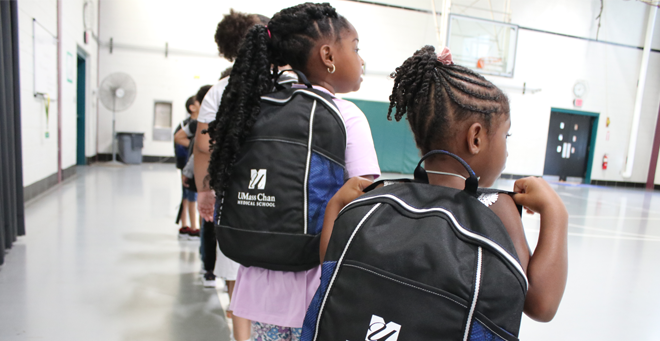
In early 2022, the Diversity, Equity and Inclusion pillar that calls for deliberate steps toward cultivating a truly diverse, equitable, anti-racist and inclusive community was added to UMass Chan Medical School’s IMPACT 2025 strategic plan. Since then, nine UMass Chan departments, with guidance from the Diversity and Inclusion Office, have participated in the pilot phase of the Diversity and Equity Action Plan (DEAP) project to develop plans to align their work with the five priority areas outlined in the strategic plan. These include culture and climate; curriculum; education and engagement; equity with recruitment, retention, and advancement; and accountability and quality improvement. As the Diversity and Inclusion Office prepares to recruit additional departments to participate in the DEAP project, two leaders of departments that participated in the pilot share insights on valuable lessons learned from the process.
John Erwin, vice chancellor for government relations, and Joan Vitello-Cicciu, PhD, the Donna M. and Thomas J. Manning Chair in Nursing and dean of the Tan Chingfen Graduate School of Nursing, led DEAP audits within their respective departments.
Erwin said since July, the Office of Community and Government Relations has made a concerted effort to connect UMass Chan personnel with diverse backgrounds to nonprofits seeking board members and sponsor programs and organizations that focus on diversity, equity and inclusion.
“We’re aiming for 80 percent of our sponsorships to have a DEI focus,” Erwin said.
Dean Vitello reported that since the fall, faculty and staff in the Tan Chingfen Graduate School of Nursing have had restorative justice training, and have been strongly encouraged to participate in implicit bias training. The nursing curriculum has also been thoughtfully considered.
“Faculty are critically reflecting on how personal biases interfere with inclusive learning goals,” Vitello said. “They are identifying and implementing new learning strategies to mitigate unconscious bias and improve representation of the differences that exist among us. We want our students to participate in ending the health inequities many minoritized and marginalized people experience.”
Vitello said the biggest DEAP challenges were self-imposed. “As nurses, we tend to be overly ambitious,” she said. “One of my lessons learned is that I’m going to look at deliverables and make them more specific, more measurable, more actionable and more realistic.”
Above all else, Vitello hopes that DEI initiatives will strengthen feelings of inclusivity.
“I hope that all faculty and staff keep diversity, inclusivity, equity and a sense of belonging on the forefront of everything we do,” said Vitello. “It’s not just about diversity of culture, but diversity of thought as well. In the long term, I’m hoping we’ll be graduating learners who are reflective of the society we’re going to see in 2030 and 2040, which isn’t far from now.”
Marlina Duncan, EdD, vice chancellor for diversity and inclusion, is excited for DEAP to continue for another year.
“With more people focusing on these efforts, impact will spread like a ripple in the pond,” Dr. Duncan said. “You can’t understand all the nuances of individual departments. DEAP allows for intentional, personalized work. The ultimate goal is to have every department on campus submitting an annual Diversity Equity Action Plan.”
Erwin encouraged all departments to join DEAP initiatives.
“If other departments are considering DEAP, I would say to jump right in because it’s definitely a worthwhile effort and not as daunting as it seems,” Erwin said.
The DEAP pilot participants are the departments of pediatrics, medicine, anesthesiology, and psychiatry; the offices of communications and government & community relations; the Tan Chingfen Graduate School of Nursing; ForHealth Consulting; and the Lamar Soutter Library.
Departments interested in participating in DEAP’s next cycle are encouraged to contact Lynn Hernández at Lynn.Hernandez1@umassmed.edu.

